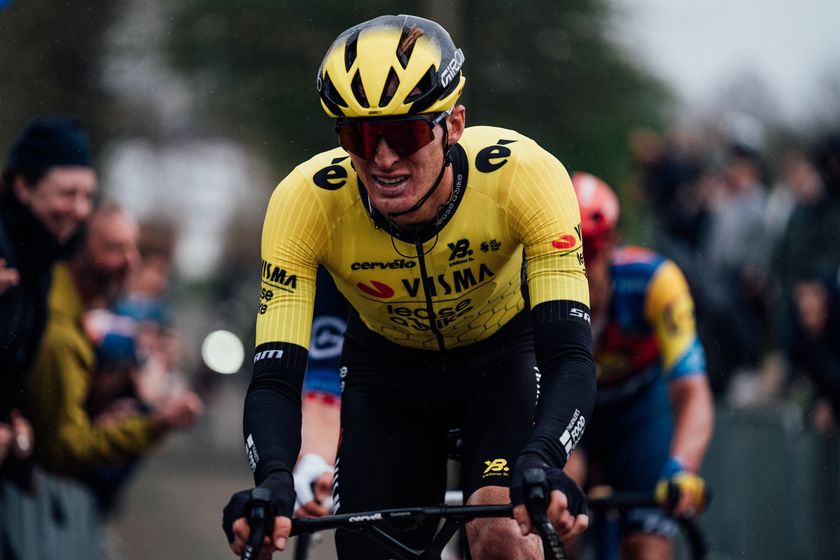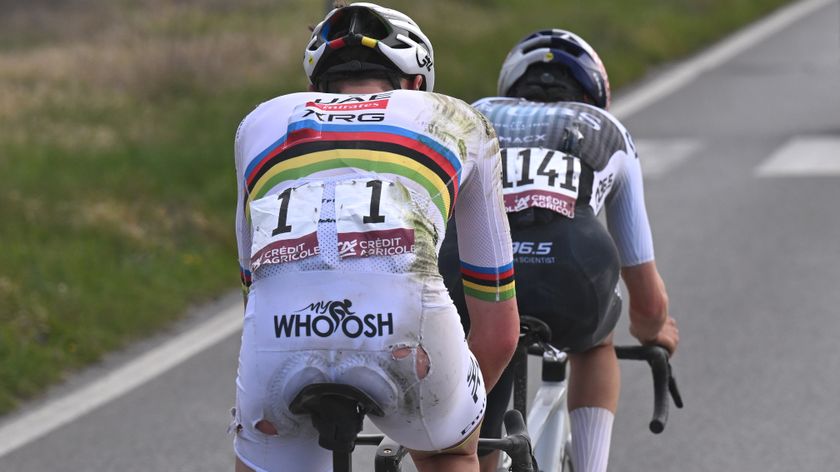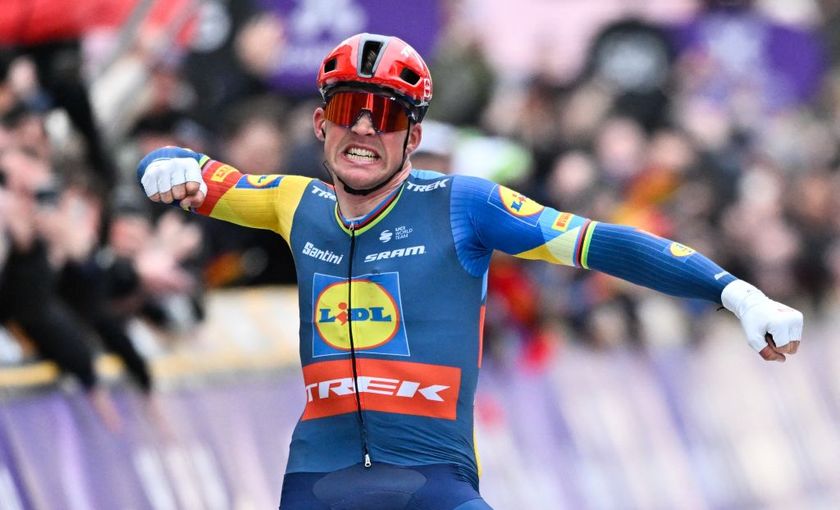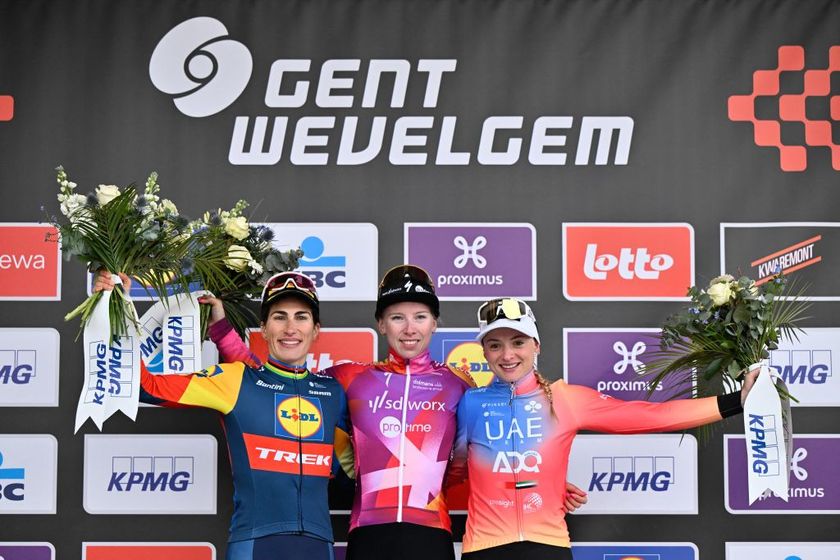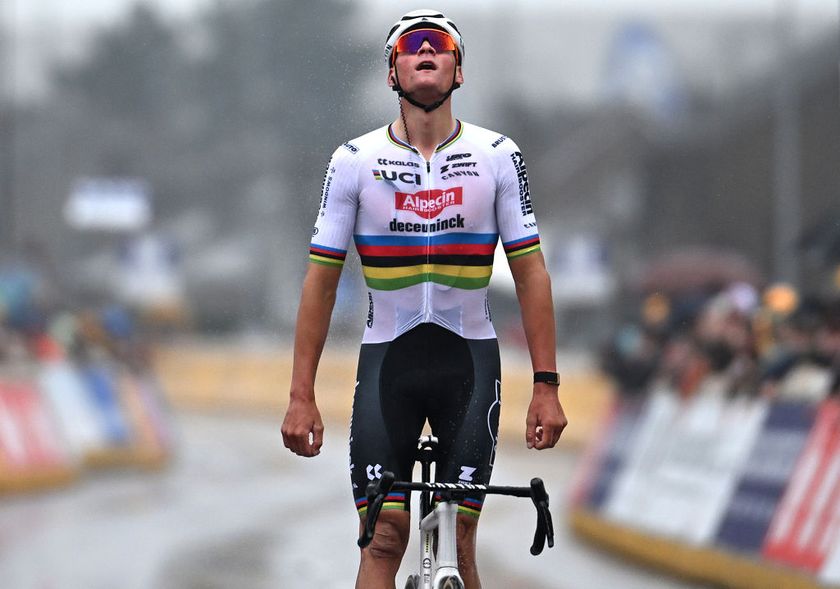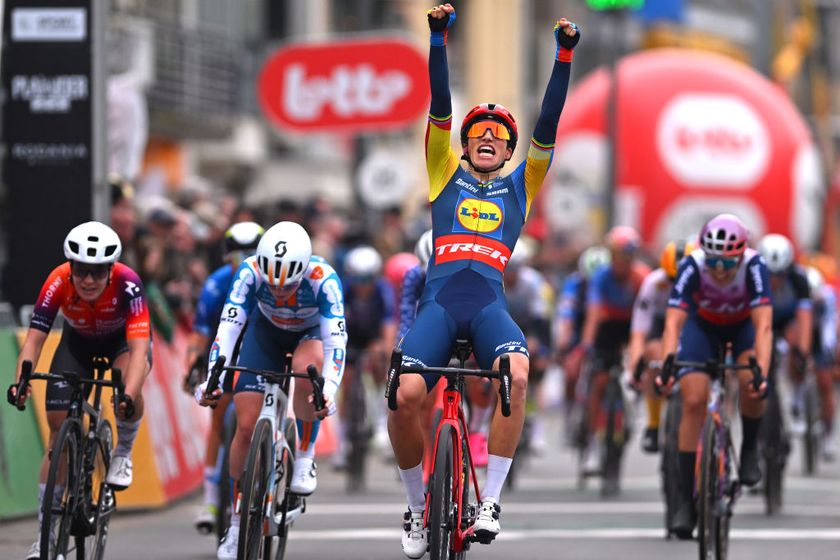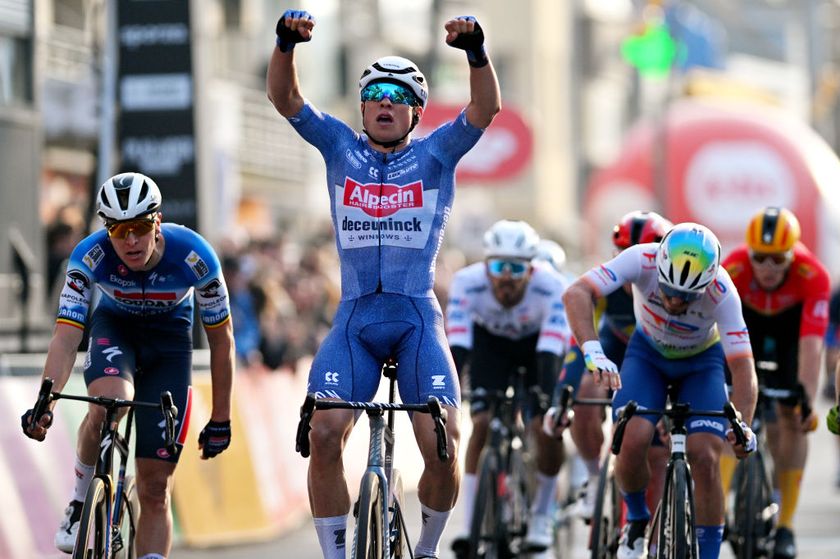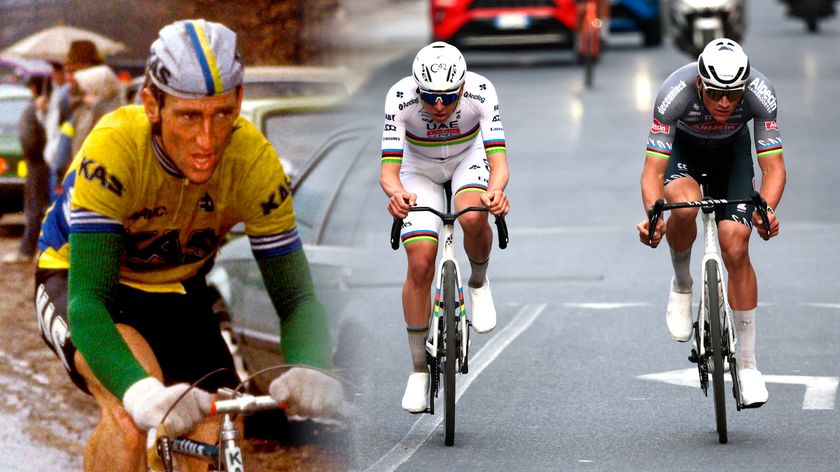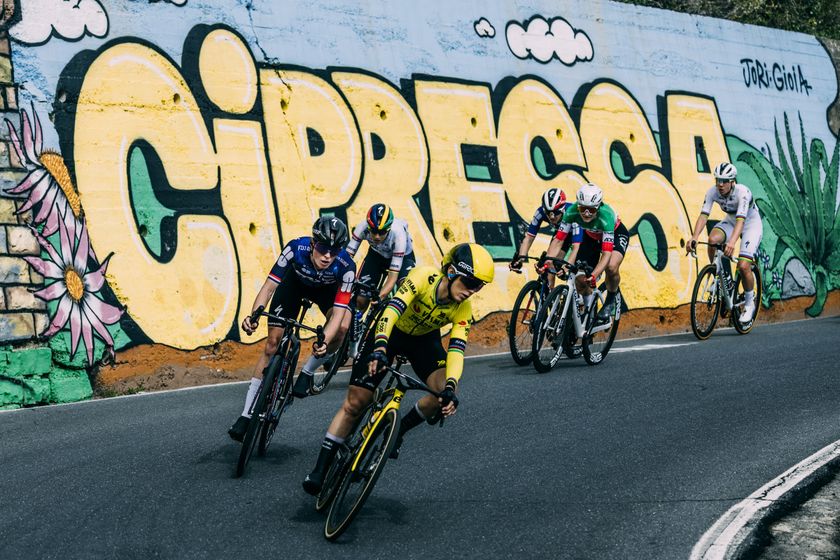"The ProTour has nothing to do with magic"
The latest reform of professional cycling, the UCI ProTour, started with Paris-Nice. Subject to a...



An interview with Patrice Clerc, March 25, 2005
The latest reform of professional cycling, the UCI ProTour, started with Paris-Nice. Subject to a lot of discussion within the world of cycling, the new calendar has received both applause and criticism - the latter in particular by the organisers of the three Grand Tours, ASO, RCS and Unipublic.
Tour de France organiser ASO has been making a point of its rejection these last months, disapproving of the new classification system itself but also - and especially - of the way in which the UCI restructured race rights and licenses. So it was perfect time for Cyclingnews' Hedwig Kröner to catch up with ASO president Patrice Clerc just before the third race of the ProTour, Milano-Sanremo, to clarify their position.
All of the ProTeams had participated in the event hosted by RCS, ASO's Italian homologue, but that agreement was the fruit of a very serious crisis at the end of last year. Asked to briefly outline the situation between ASO and UCI as it is today, Patrice Clerc replied, "Our disagreement regarding the structure of professional cycling in the future is of a fundamental nature. However, to resolve the crisis resulting of our disagreement, we came to an accord last December 1, 2004, which I defined at the time as a "minimal agreement", and which is in fact very simple:
"We take 27 competitions identified within a calendar whose name is ProTour and accept the participation of - at the time there were 19 - teams who identified as ProTeams and allowed them to participate in our competitions. In return, the teams committed to take the start at our events, so the agreement is extremely simple. At the same time, we decided to establish a work group as soon as possible, to discuss all the unresolved issues for the future."
Cyclingnews asked Clerc if ASO was contributing financially to the ProTour and he replied, "ASO has simply committed to pay the taxes and calendar rights of the UCI, which are in fact considerably higher than last year, just like the other organisers," he said. But the discord between the two institutions goes deep; far beyond questions of detail. Patrice Clerc summed up the main points of conflict:
"The first issue is - or was - the ethical concern. We are all very satisfied that the teams have now made an auto-disciplinary move and signed the Ethical Charter. So that first point can be considered as settled, even if we need to be vigilant as to how it will be applied, because it has always been a priority for us. I nevertheless would like to congratulate all the parties involved for taking this decision.
Get The Leadout Newsletter
The latest race content, interviews, features, reviews and expert buying guides, direct to your inbox!
"The second issue on which we disagree is on a sporting level. We cannot conceive that a European sports system should be founded on an American, closed model. We cannot conceive that there shouldn't be - at one point or another - a sports sanction in that system. We therefore ask to study and decide on a system that would allow some teams to enter and some teams to leave the structure. I'd like to emphasize that this would be the European model of sports as it is evoked in European directives.
"Thirdly, the question of transparency, which UCI president, Mr Verbruggen, often addresses. But transparency also includes the transparency of governing. Today, you can't say that cycling is constituted by the teams on one hand and by the organisers on the other, and then tell some organisers that they are not allowed to participate in some of the decisions. And that has been the case, since we have been excluded from the CCP [the Professional Cycling Council - ed.]. You can't ask us to participate in a debate, take a seat at a round table when it suits you, and then chase us away when it doesn't.
"The fourth point regards the [ProTour] licence. We think it is inconceivable and unacceptable to ask for an organising license for our events; in a system that is just barely coming to life. Because these are the competitions that have created professional cycling in the first place!
"And a license is a lease, if you think of it in terms of real estate, for a limited period of time, that gives an authority the right to organise. However, we consider that we have the ownership of our events. It's not a question of money, it's a question of principle. A licence transforms a landlord into a tenant. We do not even consider that hypothesis. The teams are not shocked by the license principle because it gives them a guarantee of participation at certain races for a limited period of time. But we do not believe we have to transform what have been for the last hundred years: race organisers.
"The last point of discord is also a very fundamental one, and it concerns the marketing structure of the ProTour. It's only a few weeks since the cards have been on the table about this matter. This point is about sharing (ProTour TV) rights as soon as 2008. In the past, it was referred to as something voluntary, but now, we find out that the final goal of the ProTour (is to make race organizers share TV rights), and this is also absolutely unthinkable to us. It would be like a joint venture. We do not want to enter a system of sharing (TV rights)."
Asked if he thought that a settlement was within reach, even for next season, the ASO president replied: "From the moment when we were instructed that the UCI wanted to install a new calendar at the World Championships in Verona, I have repeated throughout 2004 that we are open to discuss the problems that this reform in its current form posed. We are still in the same frame of mind.
"I think in any contract whatsoever, any business or any element of daily life, one party cannot impose on another something that it doesn't want. There are things that deeply disturb us, but we are committed to trying to find a solution. My impression is that we are repeating ourselves for the last six months: We are part of professional cycling and therefore, we should get along - or we are not part of professional cycling, and it that case, on should tell us. But we can't be excluded because we disagree."
ASO is the owner of six of the top ProTour races, with considerable power within the sport due to the standing of their events, especially the Tour de France, the queen of stage races. The survival of the ProTour in its current form is therefore under considerable threat. Said Clerc, "Instead of a cycling sport which was in progress, trying to make things better, we now have a calendar named ProTour, which is an extremely restrictive system to which we do not want to adhere."
But what would have been Clerc's reform of the cycling calendar if he could have had more influence on it?
"I think it is a fundamental error to want to oppose the organisers of the competitions and the participating teams within one sport," Clerc replied. "Today, the big sports are all in competition with one another. Cycling faces threats from football, athletics, the motorised sports, and battles for TV time slots, exposure in the mainstream media, newspaper pages etc. That's the big challenge of cycling. Therefore, I think that we should determine a reduced Elite calendar, established for a certain period of time, that will allow for a lot of media exposure."
The newly established calendar is made of 27 races, including the Tour of Poland, whose media exploitation has been subject to a lot of questions. Obviously, the UCI is trying to open new markets for professional cycling, but the question of public attention remains: "It is sacrilege to say that increasing the number of competitions will result in greater media coverage," Clerc declared.
"What's more, I've heard that they want to reduce the number of racing days at the Grand Tours - that's a fundamental error to me! Would those cut off racing days from the Grand Tours translate in media coverage at other competitions? Never!"
Clerc, who also disagrees that the dispute between ASO and UCI is of personal nature between himself and UCI president Hein Verbruggen - "I've been getting the feeling that the media has been opposing the two of us in rivalry, boiling down the debate to questions of power, ego etc. I refute all of that," he said - deeply disapproves the closure of the sport's greatest league.
"Of course, reducing the calendar to a certain number of competitions which benefit from exposure is something that we have to do. On the other hand, we can't just reduce it to some races as if it didn't need the other ones. This sport is like a pyramid. Wanting to isolate a small number of events and teams in a professional league and progressively cut them off the rest is an error. The system shouldn't be closed."
Nevertheless, Clerc does approve of some of the new calendar's rules. "There are a lot of good things, as in every reform. The effort of professionalism, the effort of transparency, the greater clarity of the classifications and the calendar - we have always been in favour of all of these changes."
But his thoughts on the details of the classification, the revised points system, also differed. The new attribution of points would seem to minimise a sprinter's chances of winning the ProTour - a stage win in one of the Grand Tours is awarded three points, in comparison to 100 points for the overall victory of the Tour de France, 85 for winning the Giro or the Vuelta. At other ProTour stage races, a stage win is worth only one point.
"Every classification system can be criticised, not one of them being perfect," said Clerc. "But a system that doesn't represent the reality of the sport is a system that won't work. In the end, it's the public who will judge it, and if it thinks the attribution of points doesn't reflect the difficulty or the value of a victory, the classification will not be adopted.
"It's true, it is an element that we think could be reconsidered. For a lot of riders, a stage win in one of the Grand Tours is often a big accomplishment in their careers, sometimes more than a race victory. Moreover, we have all the different aspects of cycling in the Grand Tour stages: mountain stages, individual or team time-trial stages, stages comparable to the big sprinter's events... But the decision of how many points are awarded remains subjective."
All of the ProTeams participated in the first event of the new calendar, Paris-Nice, and the winner, Bobby Julich, was awarded the first leading ProTour jersey on top of the traditional yellow-white winner's jersey the race organiser, ASO, gave to him in the final ceremony.
So did Paris-Nice benefit from being the first ProTour race this year? "Paris-Nice has benefited from being the first race in the calendar, like every year," Clerc specified.
"It is a very old race, and the efforts to publicise in the media it have been increased in the last couple of years. So I think it's because of these efforts by ASO that the race has been getting its public attention. Nevertheless, I wouldn't negate that there is an effect of curiosity because there has been a reform. But it's got nothing to do with magic. Neither has this marketing plan, which gives the impression that there is this Ali Baba cave with a treasure of resources to discover, and that the key to open the door is the ProTour. On paper, I've been reading of 'hidden resources' and that they are 'evident' - they are so evident that it's not even worth of talking about them," Clerc noted incredulously, with a hint of cynicism.
To conclude the conversation, Cyclingnews asked what were the next steps ASO was undertaking to reach an agreement with the UCI. Clerc's reaction was straightforward: "It's simple: Either they want us in or they don't," he categorically affirmed.
"If they do, we're ready for discussion. But discussion means exactly that: To discuss things, and not be told 'this is the ProTour, that's what we'll do.' It means that one is open to listen to the point of view of the other, and wanting to find an acceptable solution for all parties, instead of imposing its own," he explained, criticising once more the way in which the UCI has been handling the negotiations.
The schism between the two organisations runs deep, and it's worth questioning what will happen to professional cycling if the two institutions fail to bridge it.
Cyclingnews' recent coverage of the ProTour-Grand Tours split
October 4, 2008 - New ASO chief to maintain values
September 26, 2008 - UCI declares peace, appoints new VP
August 30, 2008 - UCI re-signs five ProTour races
August 22, 2008 - ProTour: Bouncing back or lame duck?
August 19, 2008 - Stapleton analyses 'world calendar'
August 18, 2008 - Feedback on 'world calendar'
August 18, 2008 - UCI announces 'world calendar'
Cyclingnews' complete coverage of the ProTour-Grand Tours split
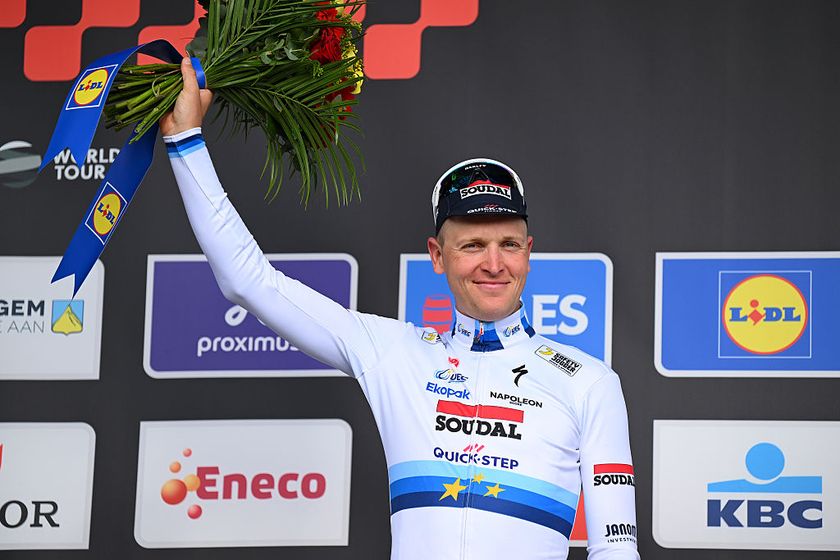
'The best result we could have done' – No regrets for Tim Merlier and Soudal-QuickStep at Gent-Wevelgem despite criticism over chase
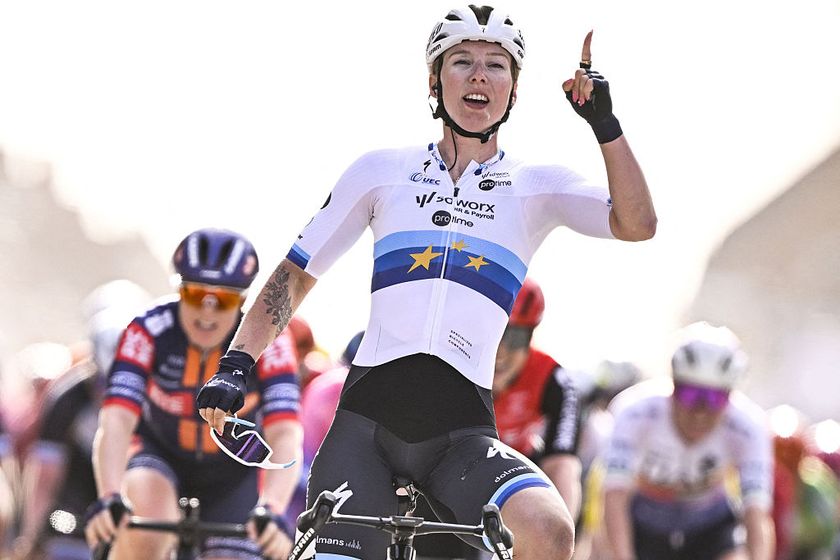
'She is insane' – Lorena Wiebes ticks off 100th victory with Gent-Wevelgem win
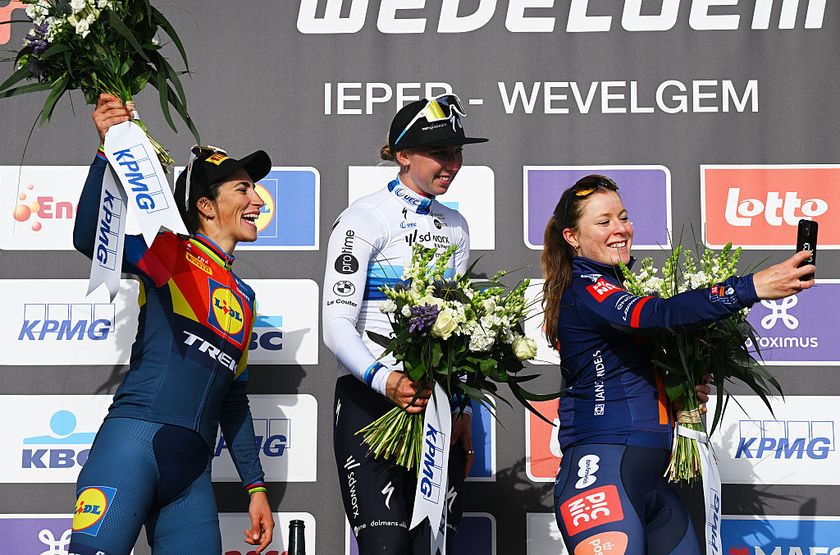
'She is the strongest right now' - Elisa Balsamo second to Lorena Wiebes in Gent-Wevelgem
